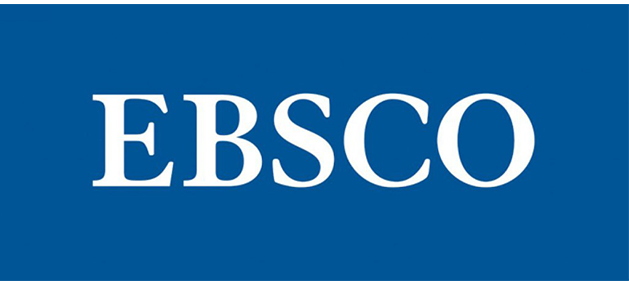THE IMPACT OF PANDEMIA COVID-19 ON THE RESILIENCE OF INDIVIDUALS AND SOCIETY: SOCIO-PSYCHOLOGICAL ASPECTS
Keywords:
Covid - 19, resilience, family relationships, emotional problemsAbstract
In this exploratory study, on the samples of 2705 respondents from Serbia and 1123 from Montenegro, the authors used an electronic survey to compare family relationships and affective life of adolescents before and after the COVID-19 pandemic.
Contrary to the results of other research, the relations between parents and adolescents and the overall family relations were significantly better after the COVID-19 pandemic. Although to a lesser extent, improvement was also reported in affective life, although depressive syndrome remained dominant. The authors explain these unexpected results as a greater individual and group resilience due to increased family cohesion, as well as greater emotional and social support of parents during the Covid-19 pandemic. At first sight, paradoxically, significant catalysts for increased resilience were certain anachronistic collective-psychological patterns of patriarchal heritage in both countries and especially in Montenegro.
References
Đukanović, B. (2021). Psihološki i socijalni aspekti rada od kuće. U: Radović-Marković, M., Radulović, D., Đukanović, B. Rad (k)od kuće. Ekonomski, pravni i socijalno-psihološki aspekti. Izdavačka knjižarnica Zorana Stojanovića, Sremski Karlovci - Novi Sad,str. 209-269.
Escandón, K, Rasmussen, A.L., Bogoch, II , Murray EJ, Escandon K, Popescu SV, Kindrachuk J. COVID-19 false dichotomies and a comprehensive review of the evidence regarding public health, COVID-19 symptomatology, SARS-CoV-2 transmission, mask-wearing, and reinfection. BMC Infect Dis. 2021; 21, 710. doi:10.1186/s12879-021-06357-4
Altwaijri N, Abualait T, Aljumaan M, Albaradie R, Arain Z, Bashir S. Defense mechanism responses to COVID-19. PeerJ 10:e12811. doi:10.7717/peerj.12811
Walker G, McCabe T. Psychological defense mechanisms during the COVID-19 pandemic: A case series. Eur J Psychiatry. 2021; 35(1): 41–45. doi:10.1016/j.ejpsy.2020.10.005
Brooks SK, Webster RK, Smith LE, Woodland L, Wessely S, Greenberg N, Rubin GJ. The psychological impact of quarantine and how to reduce it: a rapid review of the evidence. Lancet. 2020; 395(10227): 912–920. doi: 10.1016/S0140-6736(20)30460-8
Bento AI, Nguyen T, Wing C, Lozano-Rojas F, Ahn Y-Y, Simon K. Evidence from internet search data shows information-seeking responses to news of local COVID-19 cases. PNAS. 2020; 117(21): 11220-11222. doi:10.1073/pnas.2005335117
Nicomedes CJC, Avila RMA. An analysis on the panic during COVID-19 pandemic through an online form. J Affect Disord. 2020; 276: 14–22. doi:10.1016/j.jad.2020.06.046
Juvet TM, Corbaz-Kurt S, Roos P, Benzakour L, Cereghetti S, Moullec G, Suard J-C, Vieux L, Wozniak H, Pralong JA, Weissbrodt R. Adapting to the unexpected: Problematic work situations and resilience strategies in healthcare institutions during the COVID-19 pandemic’s first wave. Saf. Sci. 2021; 139: 105277. doi:10.1016/j.ssci.2021.105277
Gayatri M, Irawaty DK. Family Resilience during COVID-19 Pandemic: A Literature Review. Fam J. 2021; 30(2): 132-138. doi:10.1177/10664807211023875
Repetti R., Taylor SE, Seeman TE. Risky families: Family social environments and the mental and physical health of offspring. Psychol. Bull. 2002; 128(2): 330-366. doi:10.1037/0033-2909.128.2.330
Van Doorn, MD, Branje SJT, Meeus WHJ. Developmental changes in conflict resolution styles in parent-adolescent relationships: a four-wave longitudinal study. J Youth Adolesc. 2011; 40: 97–107.
Mastrotheodoros S, Van der Graff J, Dekovic M, Meus HJW, Branje S. ParentAdolescent Conflict across Adolescence: Trajectories of Informant Discrepancies and Associations with Personality Types. J Youth Adolesc. 2020; 49: 119-135. doi: 10.1007/s10964-019-01054-7
Hadiwijaya H, Klimstra TA, Vermunt JK, Branje SJT, Meeus WHJ. On the Development of Harmony, Turbulence, and Independence in Parent-Adolescent Relationships: A Five-Wave Longitudinal Study. J Youth Adolesc. 2017; 46: 1772–1788. doi:10.1007/s10964-016-0627-7
Martin-Storey A, Dirks M, Holfeld B, Dryburgh NSJ, Craig W. Family relationship quality during the COVID-19 pandemic: The value of adolescent perceptions of change. J. Adolesc. 2021; 93:190-201.
doi.org/10.1016/j.adolescence.2021.11.005.
Fosco GM, Sloan CJ, Fang S, Feinberg ME. Family vulnerability and disruption during the COVID-19 pandemic: prospective pathways to child maladjustment. J Child Psychol Psychiatry. 2022; 63(1):47-57. doi: 10.1111/jcpp.13458
Branje SJT, Hale WW, Frijns T, Meeus WHJ. Longitudinal Associations Between Perceived Parent-Child Relationship Quality and Depressive Symptoms in Adolescence. J Abnorm Child Psychol. 2010; 38, 751–763. doi:10.1007/s10802-010-9401-6
Downloads
Published
How to Cite
Issue
Section
License

This work is licensed under a Creative Commons Attribution 4.0 International License.
http://creativecommons.org/licenses/by-nc-nd/4.0














